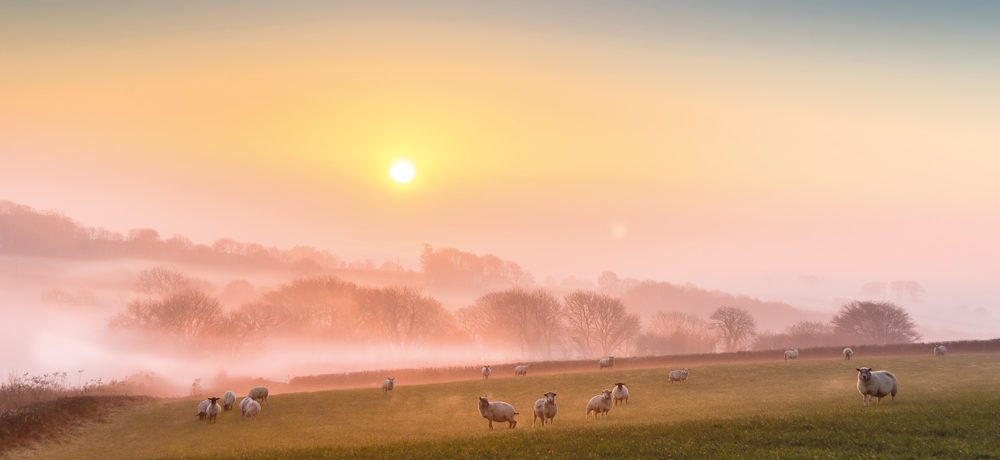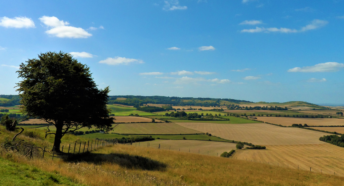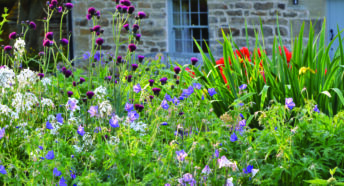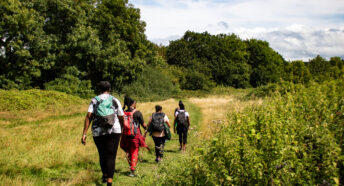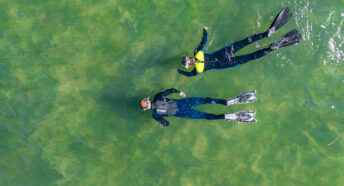Waiting for spring
‘Out among the shifting soil of the muddied fields and the zigzag cross-currents of rain, my father’s ghost is following the lambs, catching their breath on his hands.
My hands hold a hot mug of tea and I walk down to the barns where the ancient noises are temporarily hushed, between caulk and limestone, gritted paths and hay, sulphurous and sweet. My children gather the hay, passing it, up and over, past the gates and the arched bricks. Chatter, heat, a blur of movement, as we turn this alchemical thing into another shape: the shape of us.
I arrived in Devon with my family three years ago and with our Anglo-Burmese heritage in our pockets, with my father’s ghost at my shoulder, we leapt from a London-shaped portal into this hamlet inhabited by few and never, I’m sure, by exiles such as ourselves, whose ancestors come from the Shan hills bordering China, and Kerala, as well as Europe. My grandmothers lived near ruby mines in Mogok. These women knew teak trees and Burmese tea leaves, not the oaks before us now, whose grand silhouettes I stare at and take shelter beneath when it rains.
My father once taught me about Darjeeling, where he was schooled, and Shalimar, where he would swim in summer under the shade of padauk trees, a national symbol of Myanmar. When he fell ill, he dreamed he was swimming in Shalimar. His mind travelled far, then. Perhaps it is the old ways we return to, to anchor us in something true – our nature is connected, deeply, to the elements which surround us, even if we don’t always acknowledge it at the time.
It has been over a decade since my father’s death and we find ourselves in this small hamlet in the Exe Valley. When you come to know a place such as this, you listen to it first, and then you know its name. We walk a circular route around the farmland and listen to swifts, starlings and sparrows. We watch swallows and chaffinches, robins and seagulls picking out worms from the newly dug earth, arriving in a collective movement on the soil. The wings of the seagulls are like white envelopes being opened over the red Devon fields. Then, my father is singing out by the River Exe, no, he whistles, while the sheep huddle in a small field and catch their wool on the corners of crumbling brickwork.
I watch the wind in the wheat fields. There is a particular way in which the wind moves through such open, sparse terrain, echoing through the valley. I listen to the metal cattle grids and the gates, a yawning, opening and closing. I wait for spring, but I also watch the winter pass with fascination, with a tenderness towards this strange place which my exile’s heart fastens to, a little closer, a little closer.’
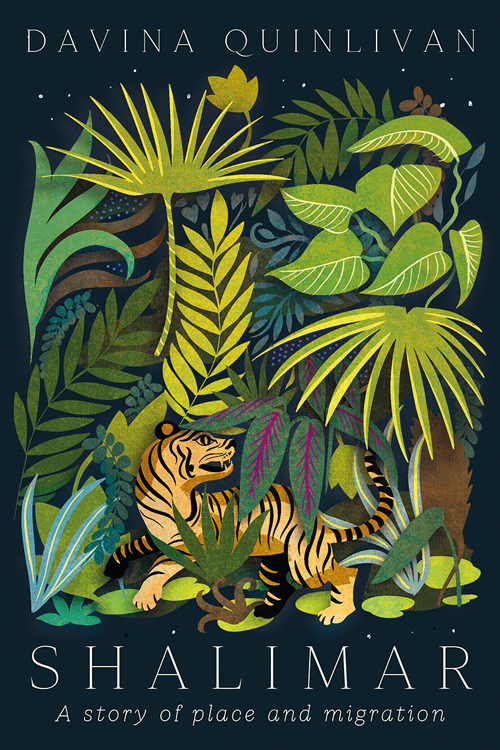
Davina Quinlivan is a writer, filmmaker and academic whose book Shalimar: A Story of Place and Migration (Little Toller Books, £16), a blend of nature writing, memoir and magic realism, is out now.
A version of this article was originally published in CPRE’s award-winning magazine, Countryside Voices. You’ll have Countryside Voices sent to your door three times a year, as well as access to other benefits including discounts on attraction visits and countryside kit from major high street stores when you join as a CPRE member. Join us now.
